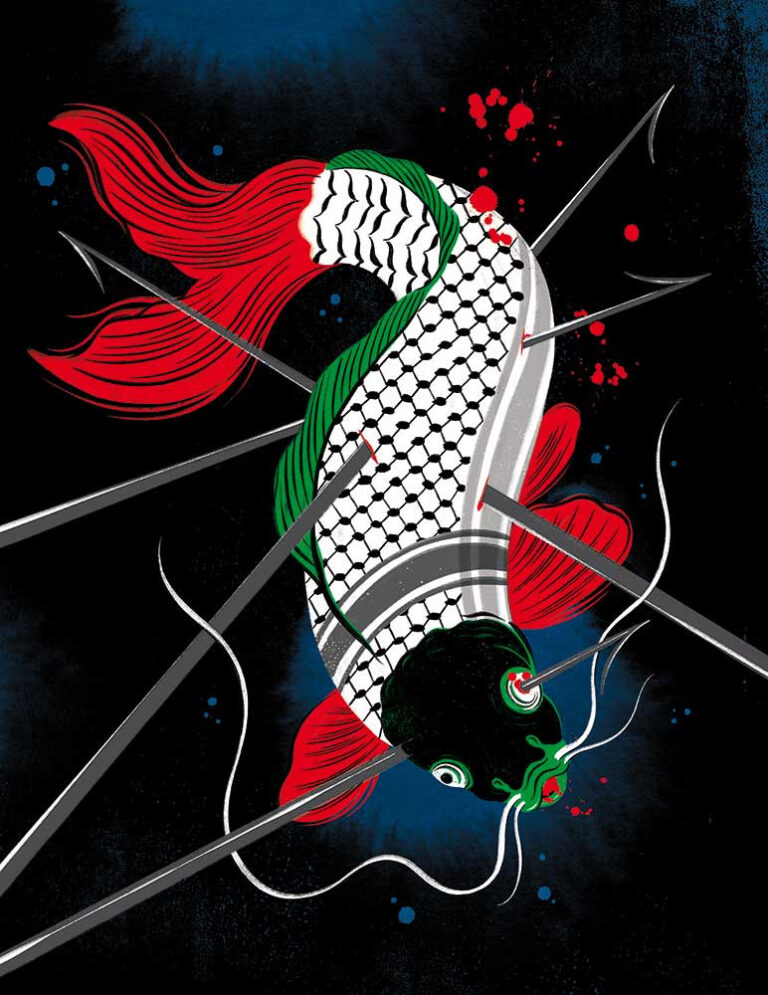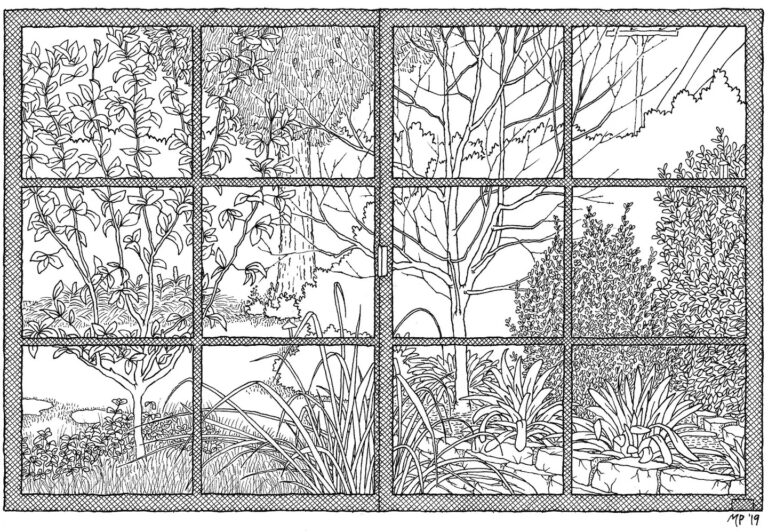Viet Thanh Nguyen writes about being a son, a father, and about parenthood as an act of creativity and creation in this op-ed for the New York Times.

At the end of my 40s, I am a father again for the second time, when I never expected to be a father at all. My own father, 85, was elated when I told him of his fifth grandchild.
He was an unemotional man when I was growing up, focused on surviving as a newcomer to this country. We lived two typical American stories. For my parents, the story was the uplifting rags-to-riches narrative of the immigrant or refugee who finds success. For our family as a whole, it was the melancholic tale of two generations, foreign-born parents and American-raised child, separated by language, culture and emotion.
My parents saw me as the rebellious Americanized child who could barely speak his native language, Vietnamese; I saw them as fanatically conservative, intimate strangers who believed only in God, sacrifice and hard work.
They provided for all my needs — food, shelter, education and religion — which made me incredibly privileged in a country that does not supply these things for all its children. Yet what I wanted was what I saw on television, the expressive, affectionate nuclear families in “Leave It to Beaver,” “Father Knows Best” and “The Adventures of Ozzie and Harriet.”
But these stories could not be about Vietnamese refugee life, because, as the writer Lac Su titled his memoir, “I Love Yous Are for White People.” Miraculously, after decades in this country, my father is now unsparing in saying “I love you” — in English — to my firstborn son, Ellison, which amazes me and fills me with joy. My father has taught me that it is never too late to say, “I love you.”
Getting older and becoming a father myself, I realize that time is elastic. My childhood, with its depths and peaks of emotion, has never gone away. My father is both the frail, sensitive and emotional octogenarian he is today and the stern, unexpressive parent of my youth. His attempts to bridge the gap between us rarely worked. He tried to bring music into our house, for example, but instead of giving me a cool guitar or a expensive piano, he brought home an organ, because he and my mother were devout Catholics who wanted to hear religious music.
I took one lesson and never wanted to play the thing again. It still sits in a corner of the dining room, a wooden relic of the early ’80s that was unfashionable even back then, embodying a stifling and punitive Vietnamese Catholicism that I rejected.
What I could not see was that the organ was also the embodiment of something else in my father: a spirit of belief, creativity and art. He grew up poor, in a rural backwater of northern Vietnam. He is the definition of a self-made man, overcoming his limited resources and building two fortunes, once in Vietnam and again in America. Besides being an entrepreneur and businessman, he also had a love of music. He taught himself how to play that organ, partly to worship God but also simply to hear and play the religious songs he loved. Music played an important role in his life, as he lets me know by singing me the songs of his youth, which he learned in church and school seven decades ago. Time is elastic for him, too.
Now semiretired, he continues to play on an electric piano and has taught himself how to play the mandolin, simply for the joy of it. How I wish I had seen this side of him when I was living in his home. But history did not spare us, did not give us this opportunity to know and explore our creative and emotional sides with each other. He never told me of his love for music, and I never told him I wanted to be a writer. We did not have enough time to spare for each other.
I was terrified of becoming a father because I did not know whether I could find the time, or the love, to spare. All my extra time went to my writing, which was my act of creativity. I expected that a child would be an enormous consumer of both time and love. What I did not expect was that a child, my son, would do more than demand; he would teach me — unintentionally, by his existence — how to love and how to give of my time, the one thing I did not want to share.
I not only played a role in creating a child, I also discovered that fatherhood recreated me by forcing me to recognize that the creation of a child did not stop at birth. Every moment with my son is a part of this act of creation, and of creativity.
All the time that my father could not spend with me, I spend with my son. Perhaps it was predictable, being the son of a writer, that he became a strong reader. Far less predictable was that we would become a father-son duo.
When he was 5, I took him to a writers’ residency, where he met Bao Phi and Thi Bui, the author and the illustrator of a children’s book that he loved, “A Different Pond.” Inspired, he drew and narrated a comic book of his own (I wrote down his words). I posted it on Facebook and an editor at McSweeney’s asked if the company could publish it. Hoping to recover some of the costs I had incurred from my very expensive son, I said yes.
More work needed to be done. I wrote additional words, while Thi enlisted her 12-year-old son, Hien, to draw new pictures. She colored his work, and this year, Ellison’s book was published as “Chicken of the Sea.” The story is all his, the misadventures of bored chickens who run away from the farm to become pirates.
My adult mind could never have come up with this story. I think about adult things like war and refugees and modernism, not about dog knights and hidden treasures of gold. But once upon a time, when I was 7 or 8, I too, dreaming of escape, had written and drawn a book called “Lester the Cat,” about an urban cat suffering from ennui who ran off to the countryside and found love. The local library, in San Jose, Calif., gave me a prize, and I started to think of myself as a writer. My school librarian took me to the award ceremony. My parents were too busy at work. I never showed them the book. What was the point?
Now the point, as I study my new daughter, pink and asleep, her foot the size of my thumb, is that the relationship of parent and child is wrapped up in love, time and creativity. Money and the social resources to realize the potential of both children and parents are also part of the relationship. Though they hardly guarantee love, time and creativity, they at least make those things easier to share, for those who want to.
Paradoxically, some of my fondest memories of childhood were from our first few years in the United States, when my parents had not yet set out to rebuild their fortunes by becoming shopkeepers and, eventually, property owners. They were working class, toiling in a nursing home laundry and a typewriter factory. They had extra time to spend with me. I wonder what they thought I would become, but I am absolutely certain that they did not expect me to become a writer.
The act of writing requires writers to give enormous amounts of time and love. Writers must love writing, must love their creations, must love their characters, no matter what they do. My children are my characters, and I am a character to them. They will tell stories about me, at least to themselves. I will be misunderstood, as I misunderstood my father, but perhaps I will be understood, too, as I hope I understand my father.
He and my mother named me after the Vietnamese people, about as patriotic of a name as one could imagine. The name turned out to be accurate, as I have done my best to stand up for Vietnamese people, even if they do not always like what I have to say. In that same spirit, my wife and I named our daughter Simone, after Simone de Beauvoir, Simone Weil, Nina Simone. Strong and creative women who were also risk-takers.
There is no creativity, or creation, including the making and raising of children, that comes without risk. I now understand what I never did as a child: that I was the product of my parents taking a risk. The risk that their gift of love would be rejected; the risk that they would be misunderstood; the risk that their creation would have a life of his own.
Authors can never predict the way their creations turn out, so the shape of Simone’s life remains to be seen. But as for Ellison so far, after “Chicken of the Sea” was published, I told him that he is not just my son. He is also my co-author.


